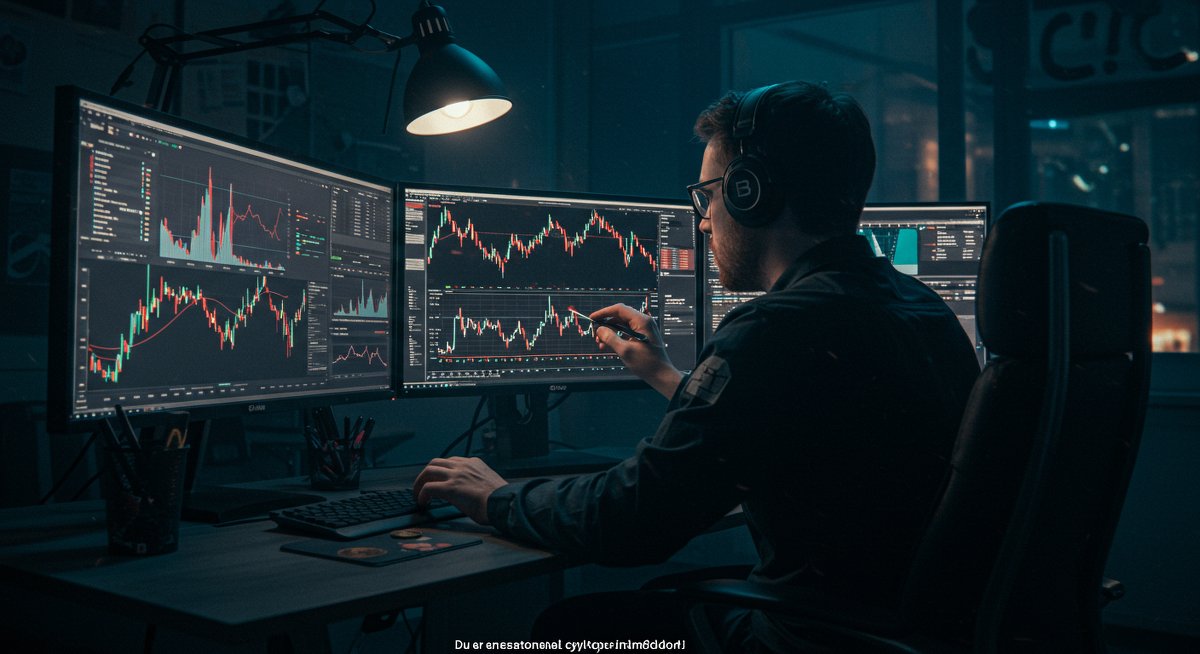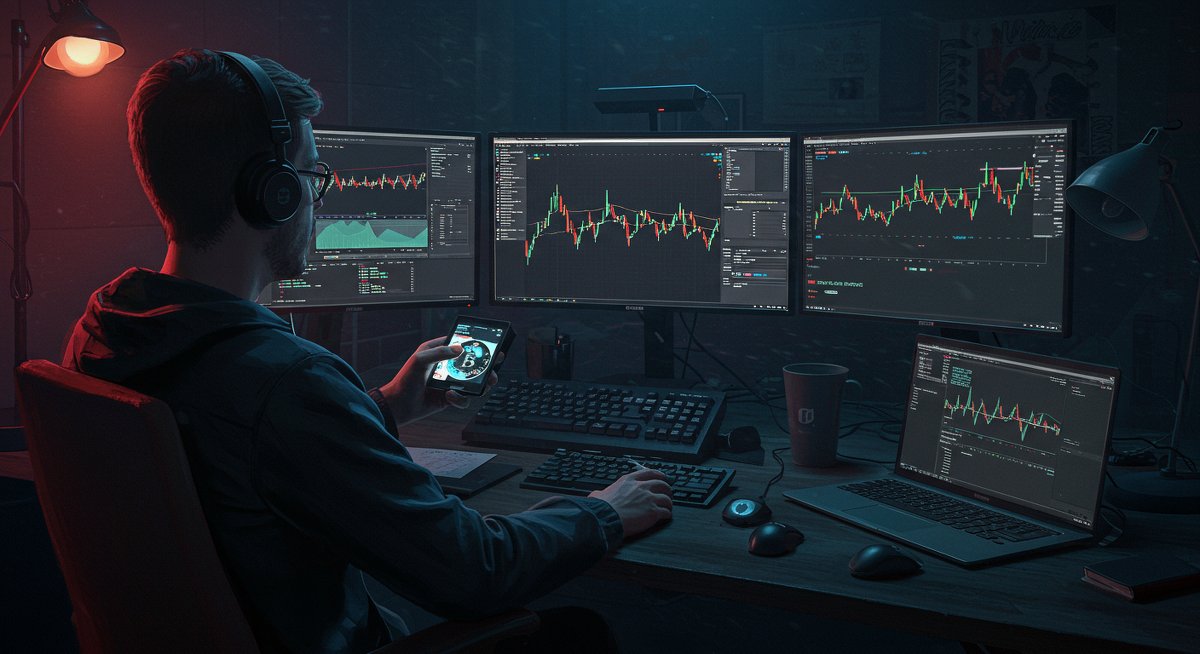This Reddit Post Got Me Thinking…
So, I was browsing r/CryptoCurrency the other day, and I saw this post about the US government holding a massive amount of Bitcoin – like, $24 billion worth. It immediately made me wonder what kind of impact this has on the bitcoin price, especially for those of us trading outside the US. Is it a bullish signal? A ticking time bomb? Or just another day in crypto? The post highlighted how the US government has become the world's largest sovereign holder of Bitcoin, accumulating around 198,000 BTC through seizures from criminal investigations and forfeiture cases. It also mentioned the relatively small percentage this represents against the national debt, the inactivity of the government's wallets, and the coincidental timing with new stablecoin regulations. The comments were, as you can imagine, all over the place – some people were cheering it as a sign of institutional adoption, while others were worried about potential market manipulation. It got me thinking about the different angles to consider, so let's unpack this a bit further.

Here's What's Really Going On
Okay, let’s break down what's actually happening here. The US government isn's out there actively buying Bitcoin like MicroStrategy. This stash of BTC primarily comes from seizing assets from illegal activities – think Silk Road-era drug busts and more recent crypto scams. That’s a pretty significant amount of Bitcoin to be sitting on, and it’s not exactly a secret. However, the lack of movement in those wallets for the last four months is worth noting. Why aren’t they selling it off? Are they waiting for higher prices? Or are they strategically holding to potentially influence the market long-term? It is also important to remember that the crypto market is heavily influenced by speculation, and this US Government stash definitely fuels speculation, which can heavily influence the bitcoin price. And while the post mentions the GENIUS Act and stablecoin regulations, I think that's a bit of a red herring. The government has been trying to regulate crypto for years, and this is just another step in that direction. The timing might be coincidental, but I wouldn't necessarily tie the two together directly. But here's where it gets interesting for us traders. That $24 billion stash represents a significant chunk of the overall Bitcoin supply. If the government suddenly decided to dump all of it on the market, it would almost certainly crash the price.
What This Means for Your Trading Strategy
So, what does this government Bitcoin hoard actually mean for your trading strategy? First off, don't panic sell. The US government isn't likely to dump all their Bitcoin at once. It would be a self-defeating move that would hurt the overall crypto market. However, it does add a layer of uncertainty to the bitcoin price. Keep an eye on those government wallets. There are plenty of blockchain explorers that track large Bitcoin holdings. If you see significant movement, it might be a signal to reduce your exposure or hedge your bets. Now, consider how this news plays into the broader market sentiment. The fact that the US government is holding such a large amount of Bitcoin could be seen as a positive sign of institutional acceptance. This could attract more institutional investors and further drive up the price in the long run. However, it also creates a potential risk. If the government were to change its policy and decide to sell its holdings, it could trigger a significant market correction. Always factor in potential black swan events like this when setting your stop-loss orders and managing your portfolio risk. A good strategy here is to diversify your portfolio. Don't put all your eggs in one basket. Spread your investments across different cryptocurrencies and other asset classes to mitigate your risk.
The Stuff Nobody Wants to Talk About
Let’s get real about the risks involved here because everyone is out to shill positive hopium. While the idea of the US government holding Bitcoin might seem like a win for crypto, there's a darker side to consider. First, the government's Bitcoin came from illicit activities. This raises ethical questions about profiting from criminal enterprises. Is it right for the government to benefit from the proceeds of drug trafficking and scams? Another risk is regulation. As the government becomes more involved in the crypto market, it's likely to increase regulation. This could stifle innovation and make it harder to trade and invest in cryptocurrencies. And speaking of regulation, keep an eye on tax implications. The IRS is already cracking down on crypto tax evasion. If you're not reporting your crypto gains and losses accurately, you could face serious penalties. Finally, there's the risk of government overreach. Could the government one day decide to confiscate all Bitcoin holdings, claiming it's a threat to national security? It sounds far-fetched, but it's not entirely impossible. It’s critical to remember that the crypto market is still relatively new and unregulated. There are many risks involved, and it's important to be aware of them before investing. Only invest what you can afford to lose, and always do your own research. Don't just blindly follow the hype.
Trading Bitcoin Outside the US: What to Consider
If you're trading Bitcoin from outside the US, there are a few extra things you need to consider. First, tax laws vary widely from country to country. Some countries have very strict crypto tax laws, while others are more lenient. Make sure you understand the tax laws in your country before you start trading. Also, crypto regulations vary internationally. Some countries have banned Bitcoin altogether, while others have embraced it. Make sure you're trading in a country where it's legal to do so. Currency exchange rates can significantly impact your profits. When you're buying and selling Bitcoin, you're typically doing so in exchange for your local currency. Fluctuations in the exchange rate can either increase or decrease your profits. Consider using a platform that supports multiple currencies to minimize the impact of exchange rate fluctuations. Depending on where you live, you may have limited access to certain crypto exchanges and trading platforms. Some platforms may not be available in your country due to regulatory restrictions. Also, payment methods vary from country to country. Some payment methods that are popular in the US, such as credit cards and bank transfers, may not be available in your country.

Step-by-Step Guide: Trading with Government Activity in Mind
Okay, so how do you actually trade Bitcoin with this whole US government situation in mind? Here's a simple step-by-step guide:
- Set up a blockchain explorer tracker: Use a blockchain explorer like Blockchair or Blockchain.com to track the US government's known Bitcoin wallets. Add them to your watchlist and set up alerts for any significant movement of funds.
- Factor in wallet activity to your technical analysis: If you see a large outflow from a government wallet, consider it a potential sell signal. Adjust your trading strategy accordingly, potentially tightening your stop-loss orders or reducing your position size.
- Stay updated on regulations: Keep abreast of any regulatory changes related to crypto, both in the US and your own country. Regulatory changes can significantly impact the market and your trading strategy.
- Diversify, diversify, diversify: As always, diversify your portfolio across different cryptocurrencies and other asset classes. This will help mitigate your risk in case of a sudden market downturn.
- Use risk management tools: Employ risk management tools such as stop-loss orders and take-profit orders to protect your profits and limit your losses.
- Consider using a hardware wallet: To protect your Bitcoin holdings from theft and hacking, consider using a hardware wallet. This will store your private keys offline, making it much harder for hackers to access your funds. Ledger is a popular platform for hardware wallets.
My Personal Thoughts On All Of This
Here's my take on the whole thing. I think the US government holding Bitcoin is a mixed bag. On the one hand, it's a sign of institutional acceptance and could potentially drive up the price in the long run. But on the other hand, it creates a potential risk of market manipulation and increased regulation. Ultimately, I think it's important to be aware of the risks and to trade accordingly. Don't get caught up in the hype, and always do your own research. I am not trying to tell you what to do with your money, but it's important to remember that the crypto market is still relatively new and unregulated. There are many risks involved, and it's important to be aware of them before investing. I'm not saying you shouldn't invest in Bitcoin, but I'm saying you should be careful and do your homework. I think the best approach is to stay informed, be prepared for anything, and always manage your risk. I'm curious to hear what you think. Let me know in the comments below.